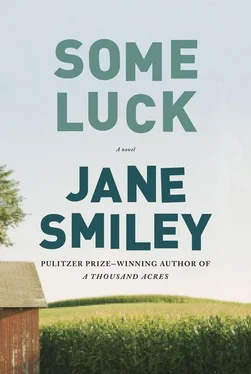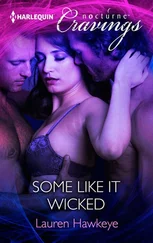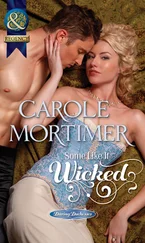“Well, she’s learned by this time to stand there with her hands over her eyes and let him do it himself. If she doesn’t, he’ll try again when he gets the chance. I hear you were exactly the same way.”
Frank glanced across the breakfast table at Andy and said, “Maybe it skips a generation.”
As they neared the bus stop, Frank saw that the bus was pulling up. Arthur took his elbow and kept him moving. The next bus was in twenty minutes. Arthur headed across the street toward the park, even though the morning was bitter cold, and Frank followed.
The quarry this time was a very wealthy man, and Frank, and especially Andrea, were perfect for this. Arthur would get them invited to certain parties; Andrea would dazzle everyone and bit by bit Frank would get to know the man. He was a little older than Frank, and had spent the war as a bomber pilot, done good service, was now running an art gallery. He was very wealthy — had money, married money — and was very well traveled. That was what interested Arthur. If this fellow was not a courier for the Reds, then they were missing out on an excellent opportunity. But if he had a code name, there was no hint of it. If the transcripts of espionage traffic between Washington and Moscow from the war were complete, this fellow was clean. “He shouldn’t be clean,” said Arthur. “He was friends with the others. Good friends.”
“What others?” said Frank.
“You’ll find out,” said Arthur.
“Will I?” said Frank.
“Maybe.”
“Are you going to pay me this time?”
“Not in cash. I can’t pay you in cash, because it’s not part of my job to ask you to do this. I’m just asking you because you’re good and you enjoy it.” He stopped walking and looked Frank in the eye. “We’re about to arrest someone, you know.”
They stared at one another for a long minute, then Arthur said, “Look, brother, one side of my government agency is out of control — I would say nuts, though only right here, in the middle of the park in the howling wind, would I say that. They have all the money and all the excitement, and we have paper and pencils and some stuff to read and think about. The slower we go, the crazier they get. My seven dwarves and I are reading, reading, reading, twelve hours a day. When Lillian and the kids go to bed, I work for another three hours. How I am going to impregnate her again, I have no idea.”
They started walking back toward the bus stop.
“But you helped me gain respectability around the agency with our last adventure, and as a result, when a certain fellow agent suggested that we go ahead and hire forty-two ex-Nazis to infiltrate the Polish government, I was able to say that I didn’t think this was a good idea. When your former quarry is arrested, it will be a nice distraction, and considerable resources will be devoted to hounding her. The very handsome gentleman that you will now befriend will cause an even greater brouhaha, so I pray to the Lord that he is busy as a bee sending information to someone in Moscow code-named, say, Binky. And”—Arthur gave him a little poke in the ribs with his elbow—“if he’s on the up-and-up, you’ll have gotten to know one of the biggest boys on the block.”
By the time the bus came, Frank was ready to begin, and he only half understood why. He had meant to be paid. Was it that Arthur had a way about him, knew how to draw him in, knew how to say “Moscow” in a certain uneasy way (and was it that he owed Arthur a little something for the translation job and now the Grumman job — Arthur never made that argument, but maybe that was because he thought Frank’s obligations were obvious)? Or was it that the adventure itself was the pleasure, that this was his path out of routine domesticity, back to his years in the tent, his years in the war, his years making trouble as a matter of course? Whatever it was, Arthur seemed to have his number.
THEY WERE DIFFERENT from the way they had been in college. It was almost enough to make Frank believe in that thing called maturity. He didn’t try to talk to her — he just did talk to her. If she was in the room and he was thinking about something, he expressed it, whatever it was. He remembered Lawrence fondly, of course, but those boys they had been seemed terribly young to him now. He thought of them as little heads peering over the steering wheel of the giant Flying Cloud, their feet barely reaching the pedals. One night, he lay in bed with Andy before falling asleep and talked about Lawrence. Andy said, “You know, that was the first person I ever knew who died. Three of my grandparents were still alive at that point, and my grandfather died in the first war, so I was just so amazed. And I was the one who was supposed to comfort Eunice. I felt like a baby. She ended up comforting me.”
“She seemed, I don’t know,” said Frank, “like she didn’t care all that much. I hated her for that.”
Andy took a drag on her cigarette and placed it carefully in the ashtray. She turned to him. Frank hadn’t meant to say anything about Eunice. That the remark had slipped out was a sign of how different he felt with Andy from how he had with Hildy. She put her hand on his chest. A bright shaft from the streetlight outside slid between the imperfectly closed curtains to light up the top of her head and split her face in two. She said, “Honey, do you think we couldn’t tell you were furious with her? But at that point she didn’t care all that much for him. She was about to break up with him when he got that infection.”
“You said they were going to get married.”
“That’s what she told me and his parents right then, but later she told me the truth.” She took his hand. “Baby, I was fond of Lawrence, but you loved him best.” Then she said, “I thought maybe, when you got into the army, you might make another friend like that.”
When the storm started a few hours later and woke them both up, she was lying on her back, half uncovered, and Frank was pressed against her, his face in her hair. Thunder must have awakened him, but when the lightning struck, the first thing that he was aware of was her fragrance, a mixture of sleep and the L’Air du Temps he had given her for Valentine’s Day. She turned toward him just then, and he was thrilled to the point of disorientation by the smooth weight of her in his arms. He kissed her all over her neck and in her hair, underneath her ears, along the ridge of her shoulders, everywhere. He slipped the straps of her nightgown down her arms while she lifted the elastic of his boxer shorts carefully over his cock. He could not wait to be inside her, Andrea, Andy, Hildy, this woman, that child. For once he needed no encouragement, no reassurance — was that what it was? Whatever it was, it was a relief to simply want her, to find her flesh and her scent and the wave of her hair and the sound of her voice magnetically alluring, first from the front, as usual, and then again from behind, which she was not quite prepared for but found ravishing. And then they were awake until the alarm rang, and as he turned it off, Andy said, “Well, my parents never told me about this sort of thing.”
“What was that?” said Frank.
“That you could go to bed married and wake up remarried.” After that, they got up and performed their usual routine, but, as if by common consent, they said nothing practical, made no plans. They had gone back to being strangers, and it was the most romantic thing Frank had ever known.
JAMES HAGGARD UPJOHN and his wife, Frances Travers Upjohn, were shaking hands in a receiving line at the Metropolitan Museum of Art when Frank first saw them. Frank was standing behind Andy, who had borrowed a Dior gown from a connection she had at Bergdorf’s. Frank himself had invested in a tux, and, looking at Jim Upjohn, he suspected that he was going to give the thing plenty of wear. The cocktail party was for an opening, the biggest since the war, of a show of Greek and Roman art. Andy was now three people away from James Upjohn. Now two. Now one. Andy held out her hand, and Upjohn turned from the old lady he had been talking to and raised his eyes. Andy said, “Mr. Upjohn. Thank you so much. Lovely to meet you.”
Читать дальше












